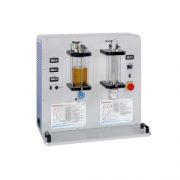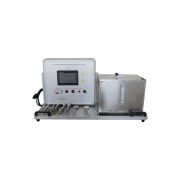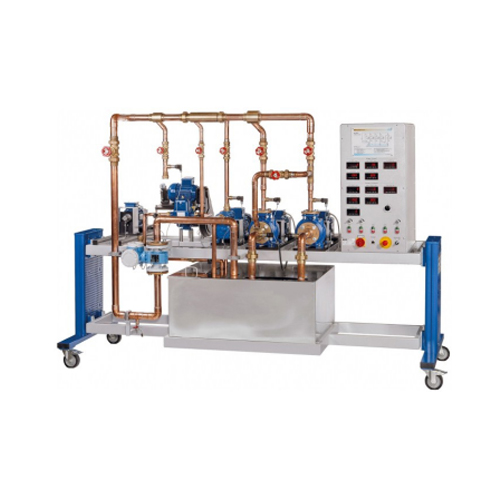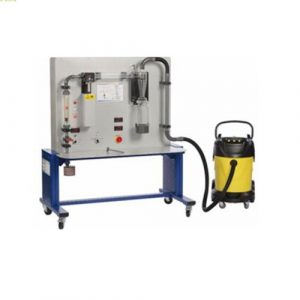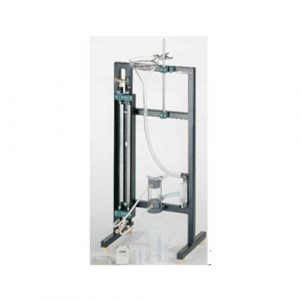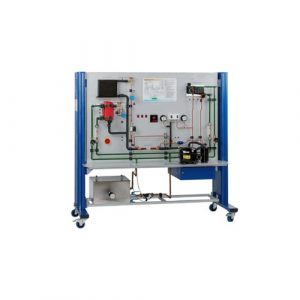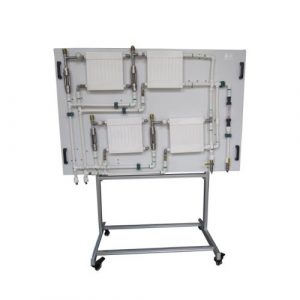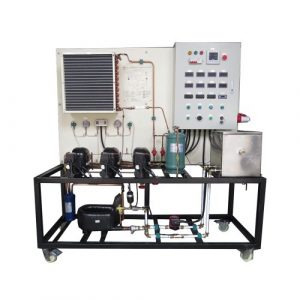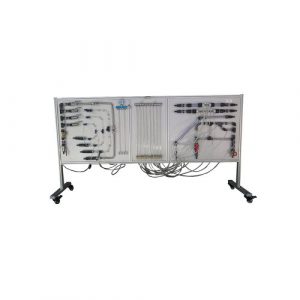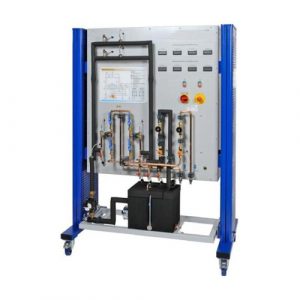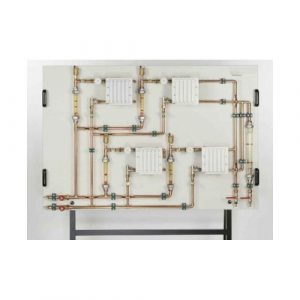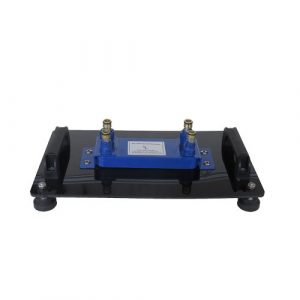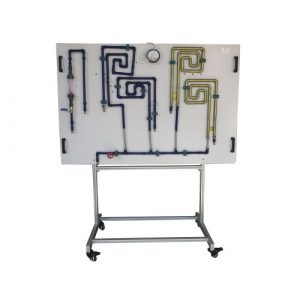- Description
- Inquiry
TB-220804-V-4.4 Pumps of Various Types Teaching and Laboratory Equipment
I.Introduction of thermal dynamics
Thermodynamics is a discipline that studies the properties and laws of thermal motion of matter from a macroscopic perspective. It belongs to the branch of physics, and it and statistical physics constitute the macroscopic and microscopic aspects of thermal theory respectively.
Thermodynamics mainly studies the thermal properties of matter from the point of view of energy transformation. It suggests the macroscopic laws that energy follows when transforming from one form to another, and summarizes the thermal theory obtained from the macroscopic phenomena of matter. Thermodynamics does not investigate the microscopic structure of matter composed of a large number of microscopic particles, but only cares about the thermal phenomena exhibited by the system as a whole and the basic laws that must be followed for its change and development. It is satisfied to describe and determine the state of the system with a few macroscopic state quantities that can be directly felt and observed, such as temperature, pressure, volume, concentration, etc. Through a large number of observations and experiments on thermal phenomena in practice, it is found that there is a relationship between the macroscopic state quantities, and their changes are mutually restrained. In addition to the properties of matter, the constraint relationship must also follow some basic thermal laws that are applicable to any matter, such as the zeroth law of thermodynamics, the first law of thermodynamics, the second law of thermodynamics, and the third law of thermodynamics. Thermodynamics is the basis and starting point of the above-mentioned basic laws obtained from experimental observations, applying mathematical methods, and through logical deduction, to obtain the relationship between various macroscopic properties of matter and the direction and limit of macroscopic physical processes, so it belongs to phenomenology. theory, and the conclusions drawn from it have a high degree of reliability and generality.
II.Technical specifications
The equipment shall include at least the following main components: 1. Metal base, powder painted
2. Rotary vane pump
3. Vortex pump
4. Submersible pump
5. Rotary pump
6. Water flow sensor
7. Pressure sensor (manometer)
8. pressure limit switch
9. Water tank
10. Ball valves
11. Pump to water tank pipeline
12. Equipment controls
13. Connecting wires and cables
Maximum pressure at least 3 atm
Equipment power at least 1.5 kW
Overall dimensions of the equipment at least 1600 x 600 x 700 mm
Equipment weight at least 70 kg
Power supply
▪ 220V ± 10%, 50Hz, if necessary, complete with adapter
▪ European standard power cable with plug
Notes and symbols on the equipment and equipment base in Russian and/or English
Delivery set
▪ Equipment shall be supplied as a complete delivery set and shall be compatible with design and functionality
▪ Delivery set shall include, but not be limited to:
1. Pumps of Various Types Teaching and Laboratory Equipment – 1 set*
2. Description of possible laboratory works with Pumps of Various Types
Laboratory Equipment – 1 set
3. Equipment maintenance tools – 1 set
4. “Pumps of various types” posters (wall-mounted; aluminum frame profile with the possibility of mounting on the wall; plastic-based poster, at least 4 mm thick; color printing (drawings, diagrams, texts, definitions, formulas, etc.); anti-glare and washable cover; size at least
600×800 mm) – 1 set (at least 10 posters in 1 set)
5. Accessories, spare parts and consumables not listed above, but recommended by the Manufacturer – 1 set
*Note: Pumps of Various Types Teaching and Laboratory Equipment may consist of one and/or several laboratory units.



